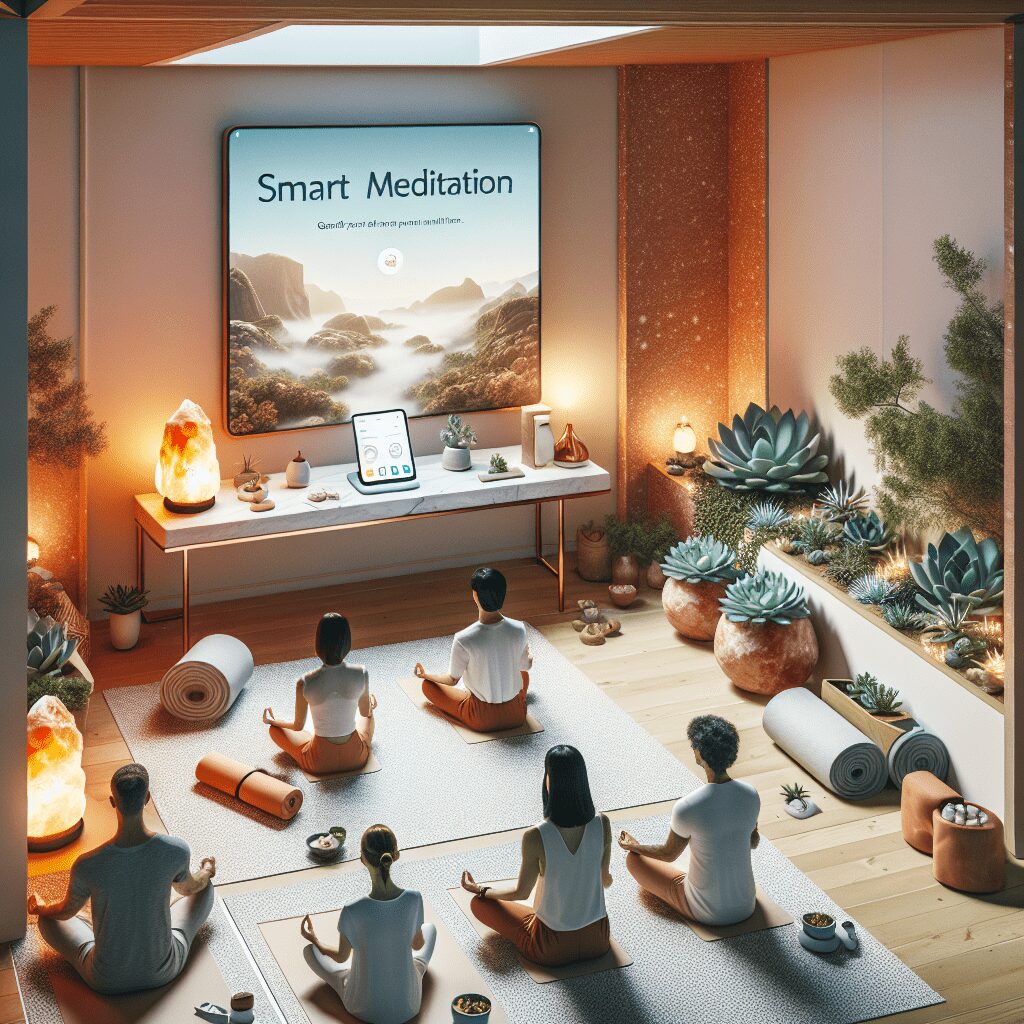
Prioritize your mental well-being daily. Enhance your life by nurturing your mental health with the Smart Meditation app. Break free from stress, alleviate anxiety, and enhance your sleep quality starting today.
How Meditation Is Used To Treat Anxiety?
Harnessing Inner Calm: The Power of Meditation in Alleviating Anxiety
Anxiety – that unwelcome intruder which wreaks havoc in the mind, casting a long shadow on daily routines and life’s simple pleasures. It’s a rampant issue, one that spares few in its widespread reach. But here’s the kicker: amidst the vast sea of remedies and therapeutic practices, meditation emerges as a beacon of hope, a serene path to tranquility. So, how exactly does this ancient practice carve out a sanctuary of peace within the tumultuous landscape of anxiety?
The Science Behind Meditation and Anxiety Reduction
Before we dive deep into the how, let’s touch base with a bit of the why. Research has been piling up, and it’s all singing praises in harmony about meditation’s efficacy in battling anxiety. It’s not just about ‘feeling zen’ – there’s a whole orchestra of neurological changes playing in tune behind the scenes.
-
Stress Hormone Symphony: Chronic anxiety often means stress hormones like cortisol are having a ball. Meditation steps in as the conductor, significantly reducing cortisol levels and thus, alleviating stress and anxiety.
-
Amygdala’s Volume Control: The amygdala, our brain’s threat detector, tends to get a bit overzealous in anxious individuals. Meditation has been shown to turn down its volume, leading to a reduction in anxiety symptoms.
-
The Mindfulness Marvel: At its core, meditation promotes mindfulness – a state of active, open attention to the present. This practice helps individuals acknowledge and accept their thoughts and feelings without judgment, which is a cornerstone in the management of anxiety.
-
Neuroplasticity’s New Grooves: Regular meditation encourages neuroplasticity – the brain’s incredible ability to reorganize itself. It strengthens neural pathways that foster calm and weaken those associated with anxiety.
Practical Steps to Start Your Meditation Journey
So, you’re intrigued and ready to embark on this serene journey, but where to begin? Fear not, for meditation’s beauty lies in its simplicity and accessibility. Here’s a practical roadmap to get you started:
- Find Your Quiet Corner: It doesn’t need to be a Himalayan cave; a quiet, comfortable spot in your home will do just fine. The key? Ensure it’s a place where you can sit undisturbed for a bit.
- Start Small: Rome wasn’t built in a day, and neither is a meditation practice. Begin with just five minutes a day. You can gradually increase the duration as you become more comfortable with the practice.
- Breathe Deep: A lot of beginner practices focus on breath work. Pay attention to your breath; follow its journey in and out of your body. This simple act can anchor you in the present and cut through the noise of anxiety.
-
Guided Meditations: If flying solo sounds daunting, guided meditations can be a great co-pilot. Plenty of apps and online resources offer guidance tailored for anxiety relief.
-
Consistency is Key: Like any good habit, the benefits of meditation amplify with regular practice. Carve out a bit of me-time each day, and you’ll gradually notice its calming effects spilling over into your life.
In Closing
Meditation isn’t a magic pill, nor is it an overnight fix. However, it’s a practice seasoned with centuries of wisdom and backed by modern science. It’s a gentle yet potent tool in your arsenal against anxiety, helping you to cultivate a space of calm within the storm. So, why not give it a shot? Embrace meditation and embark on a journey towards inner peace and reduced anxiety. After all, tranquility is not just a destination; it’s a practice.





